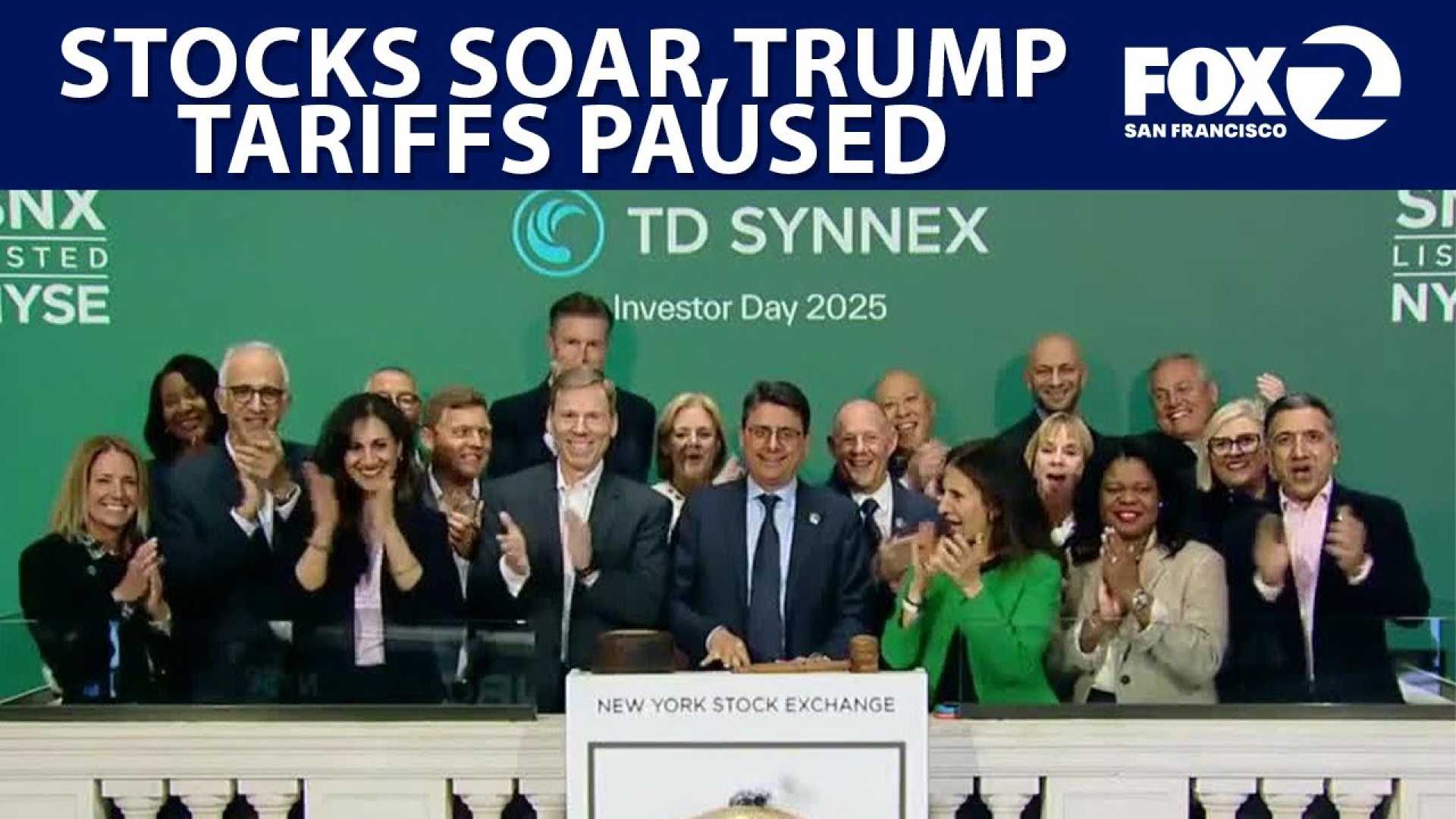Business
Wall Street Surges as Trump Pauses Tariffs Amid Trade Tensions

NEW YORK (AP) — Wall Street celebrated a remarkable turnaround Wednesday after President Donald Trump announced a temporary 90-day pause on tariffs, leading to one of the best trading days in U.S. history. The S&P 500 surged 9.5%, marking a significant rebound as investors reacted positively to the news.
The rally came after a week of anxiety, as Trump’s ongoing trade war with various nations raised fears of a global economic recession. Earlier in the day, the S&P 500 was down nearly 19% from its record high two months prior, largely due to concerns about prolonged tariffs affecting market stability.
Trump took to social media to lighten investor fears, stating, “I have authorized a 90-day PAUSE,” which he said would allow more than 75 countries to negotiate without immediate retaliatory tariffs. Treasury Secretary Scott Bessent confirmed Trump’s decision, clarifying that the U.S. would still maintain a 10% tariff on most global imports, while significantly increasing tariffs on Chinese goods to 125%.
The announcement reinvigorated the markets, lifting the Dow Jones Industrial Average by 2,962 points, or 7.9%, and propelling the Nasdaq up 12.2%. The S&P 500 finished the day with a total of 474.13 points at 5,456.90, marking its third-best day since 1940.
Market analysts observed a wave of relief across Wall Street, especially considering that 98% of stocks in the S&P 500 experienced gains. Leading sectors included airlines, with Delta Air Lines soaring by 23.4%, despite previously retracting its financial forecasts as the trade environment created uncertainty in business operations.
Despite the day’s gains, the underlying threat of the ongoing trade war remained prevalent. China had announced plans to elevate tariffs on U.S. goods to 84% following Trump’s latest tariff hike. This prompted a stark warning from the Chinese Ministry of Commerce: “If the U.S. insists on further escalating its economic and trade restrictions, China has the firm will and abundant means to take necessary countermeasures and fight to the end.”
Bessent urged countries not to retaliate, suggesting that restraint would lead to positive outcomes. However, Tuesday’s decision to pause tariffs was seen as a tactical move rather than a definitive end to hostilities.
The U.S. bond market also reacted to the news, with Treasury yields stabilizing after initial spikes caused by market uncertainties. Earlier, the 10-year Treasury yield had approached 4.50% but pulled back to 4.34% following Trump’s announcement. Analysts noted that rising Treasury yields often indicate market stress, complicating an already volatile trading landscape.
The volatility in the financial markets has pushed pundits and economists to advise against trying to time investments, with many recalling historical instances where significant market gains emerged after rounds of severe losses. The perspective remains that this week’s rally emphasises the unpredictable nature of financial markets, particularly amid international trade tensions.
In international markets, reactions to the Trump administration’s tariff approach were mixed. Major stock indexes in Europe and Asia closed lower, reflecting uneasiness overseas about the ongoing trade negotiations. The FTSE 100 in London fell 2.9%, while Tokyo’s Nikkei 225 dropped 3.9%.
As the markets continue to respond to Trump’s economic policies, analysts remain concerned about the long-term implications of tariff escalations and their potential impact on consumer prices and business investment. Economic forecasts suggest household budgets could tighten if inflation rises as a result of increasing import costs.












